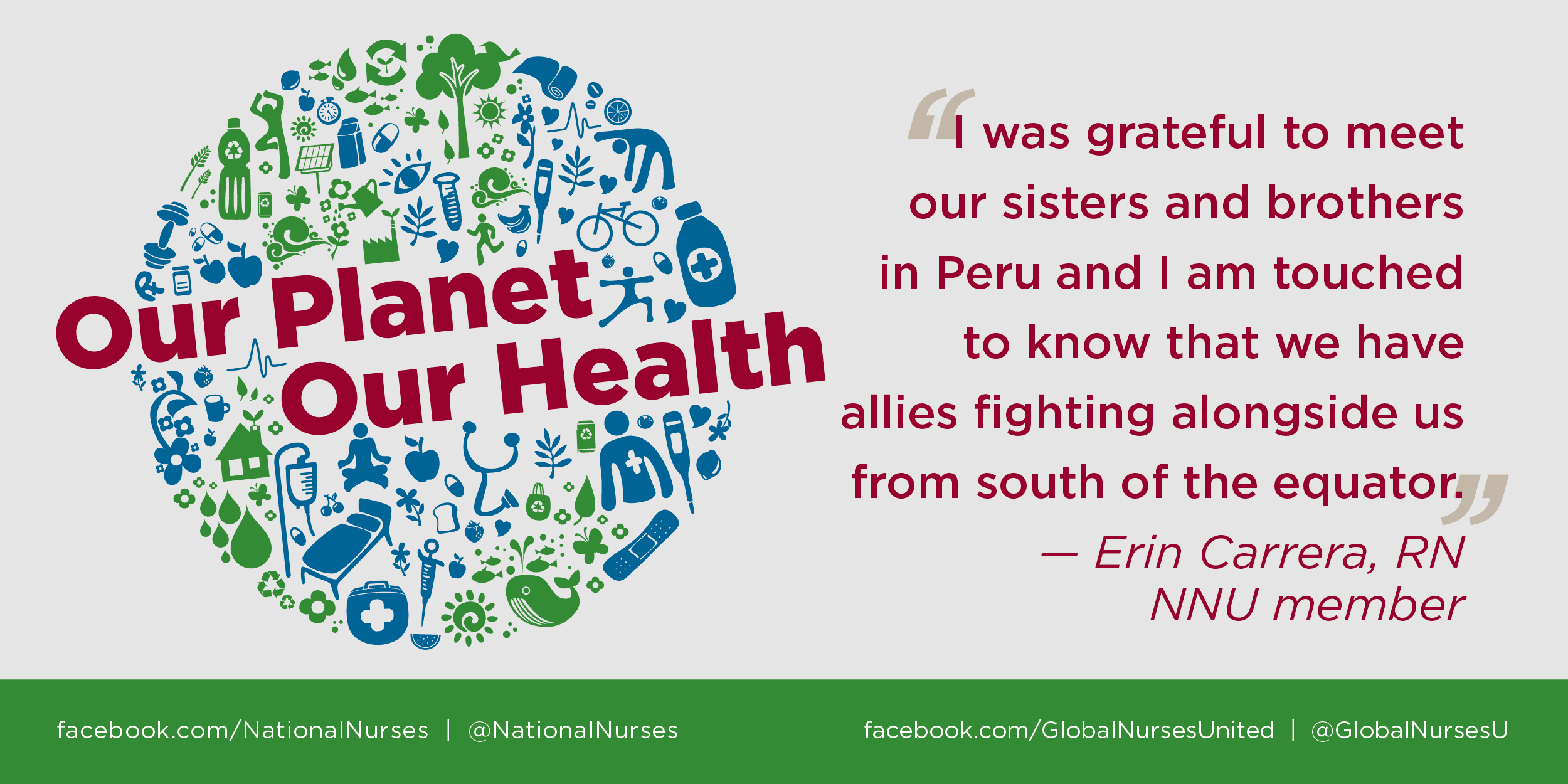Blog
More from the People's Climate Summit in Peru

Last week, we participated in the People's Climate Summit march in Lima, Peru. The march wove through busy Lima streets, blocking traffic and shutting down large parts of the downtown area. It ended at Plaza San Martin, a central plaza surrounded by beautiful colonial buildings. The plaza was filled with drumming, music, and chanting. Banners and flags waved in the air calling for climate justice.
Thousands participated including indigenous from the Andes and the Amazon of Peru and across South America. People from all parts of the world were present. We were happy to see large numbers of international labor organizations participating and the showing of labor from Peru was impressive. There were thousands of union workers in the streets from all industries – public services, construction, transportation, health and many more.
The Peruvian nurses are known for their presence in demonstrations and for supporting climate justice, as well as other social causes. We met nurses from Lima and from many other villages in Peru. Yesterday, we had the opportunity to sit down with Zoila Cotrina Diaz, the president of the Peruvian Nurses Federation, and some of her colleagues. Their union is exclusively for registered nurses and they represent 20,000 nurses from across the country.
As we heard about their struggles, we were reminded that nursing issues are very similar no matter where you are on the globe. While Peru has a public health system, it is fragmented and leaves out the most vulnerable. Two million Peruvians are without access to health care. They are mostly indigenous and those from remote villages.
The Peruvian nurses are running campaigns essentially the same as our single-payer fight, demanding equal access and quality care for everybody. Their contract disputes are with the government and while they have many hard-won victories under their belts, they are still fighting. They have had multiple strikes, some which have lasted for over a month. The biggest issue at the bargaining table is safe staffing, which should sound familiar.
They're working hard to achieve ratio language and have achieved 1:2 in adult intensive care units and some limits in acute care as well. The problem is that the hospitals frequently don't follow the ratios. We heard stories of nurses taking up to 40 patients with only the help of an unlicensed technician at times.
The nurses of Peru are very active in fighting the climate crisis. The air pollution in Lima is extremely bad. Despite its coastal location, the high mountains behind the city trap the air in place, leaving a visible smog hanging over the city constantly. Two other issues Peru faces is the rapid deforestation of the Amazon by logging companies (many of them operating illegally) and the excessive mining industry, which is contaminating air and water supplies.
They are sharing the same message that we are with the world: The climate crisis is a health care crisis and we must stop using fossil fuels and move to clean renewable energy.
They also believe that energy should be controlled by the people, not corporations and share in our vision of energy democracy.
I was grateful to meet our sisters and brothers in Peru and I am touched to know that we have allies fighting alongside us from south of the equator.